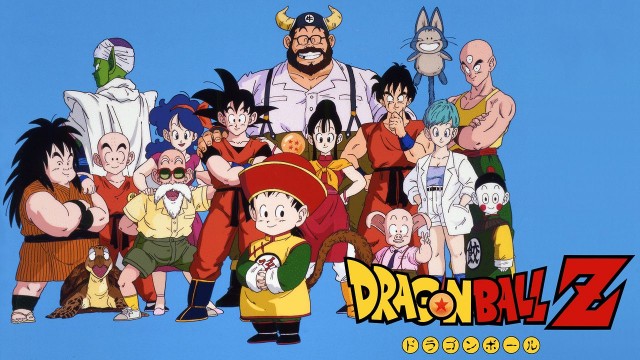The anime Paripi Kongming, scheduled to air from April 2022, tells the story of the legendary military strategist Zhuge Liang, who is transported to the present day, where he comes into contact with party culture and strives to help the other main character, Tsukimi Eiko, achieve her dream of becoming a world-famous singer-songwriter. Zhuge Liang is known as a military strategist who uses a variety of schemes, but the image of him that is commonly associated with him is that of the fictional Romance of the Three Kingdoms. So, let's take a look at what kind of person Zhuge Liang was in real life.
About Historical Facts and the Romance of the Three Kingdoms
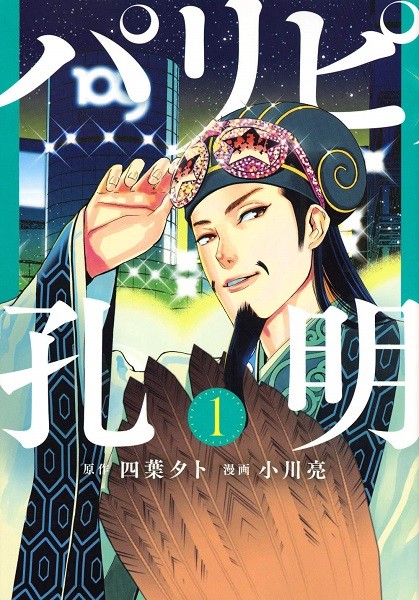
While the history of the Romance of the Three Kingdoms is based on actual events, the Romance of the Three Kingdoms is a fictional novel written during the Ming Dynasty in China. Based on the eras of Wei, Wu, and Shu from the late Eastern Han Dynasty through the Three Kingdoms period, the novel features Liu Bei Xuande and Zhuge Liang as protagonists. The story revolves around the virtuous and charming Liu Bei and the exceptionally wise Zhuge Liang, with Cao Cao of the Wei state as the central hero, representing the enemy faction. The story incorporates numerous fictional elements, and often differs from historical fact.
About Zhuge Liang's Birthplace and Background
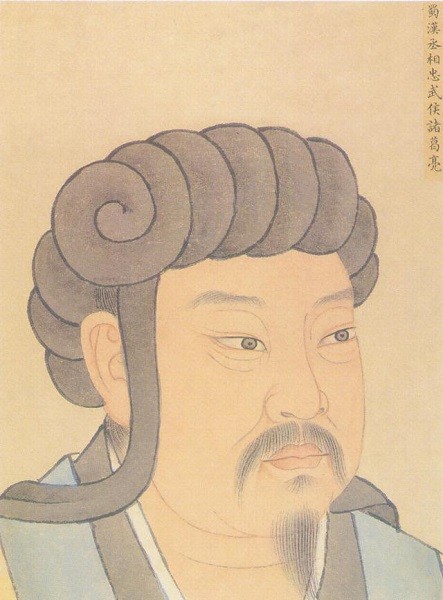
Although his birthplace is unknown, he lived in Yangdu County, Langya County, Xuzhou. As a child, he fled the wars in northern China by migrating from Xuzhou to Jingzhou in the south with his younger brother, Zhuge Jun. He relied on his uncle, Zhuge Xuan, for help. The Zhuge family was quite an impressive one. His elder brother, Zhuge Jin, was highly valued by Sun Quan in Wu and earned his immense trust, rising to the rank of Grand General. His descendant, Zhuge Dan, was appointed Grand General of the Conquerors of the Barbarians in Wei. They were an elite family that made a name for themselves throughout the Three Kingdoms. His uncle, Zhuge Xuan, was also appointed to the position of Grand Prefect of Yuzhang.
Zhuge Liang Studying in Jingzhou
After settling into life in Jingzhou, Zhuge Liang pursued his studies with his younger brother, Zhuge Jun. There, Zhuge Liang joined the elite circle of intellectuals known as "notables." However, Zhuge Liang placed emphasis on practical learning and did not seem to take the academic subjects he studied seriously. He also had an overconfident side, claiming to be comparable to the legendary prime minister Guan Zhong and the legendary military commander Lu Qi, but only his close friends Cui Zhouping and Xu Shu believed him.
Kongming's Bride
During this period, he also married. His wife was the daughter of Huang Chengyan, a prominent figure of the time, known as "Lady Huang." In the Romance of the Three Kingdoms, she appears under the name Huang Yueying. Huang Chengyan heard that Zhuge Liang was looking for a wife. Huang Chengyan's daughter had dark skin and red hair, and was considered ugly by those around her. However, she was apparently extremely talented, and her talents were said to be worthy of a prince, so Zhuge Liang married Lady Huang. This led to criticism that "one should not imitate Kongming's bride selection," and the practice of choosing an ugly woman as a bride came to be known as "Kongming's Bride."
About Zhuge Liang and the Three Visits
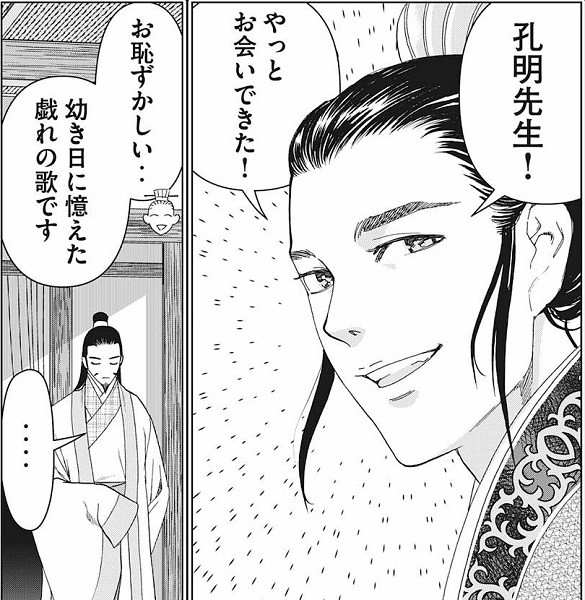
Liu Bei visited Zhuge Liang three times, resulting in Zhuge Liang serving as Liu Bei's military strategist. While these episodes are often recounted as examples of Liu Bei's virtue and insight, it's believed that there were significant calculations of gain and loss involved. While Zhuge Liang certainly possessed exceptional wisdom, this did not mean he was completely honest. In fact, Liu Bei personally visited Zhuge Liang after his friend Xu Shu told him, "He's a cynical guy, and he won't talk to me unless I go personally."
The Story Behind the Three Visits
Zhuge Liang had his own motives for this episode of the Three Visits. He had the choice of serving the righteous Cao Cao or his brother Zhuge Jin in Wu, but instead chose to serve the obscure and weak Liu Bei. Wei had Zhuge Dan, a naturally talented man and relative, and Wu had his brother Zhuge Jin. It's said that Zhuge Liang felt that his talents would be buried if he continued serving under him, and that he wanted to utilize his talents under Liu Bei, a rising power where he could wield great influence. Zhuge Liang was a genius with great ambition and a rebellious spirit, possessing a "chicken's mouth, cow's heart" mentality. Furthermore, the act of refusing requests and giving in also had a strong ritualistic significance, necessary for a notable figure to join a power, so Zhuge Liang's actions were not particularly special.
Three Kingdoms Revengers
Liu Bei, through various means, has a high reputation and his own power, but they are like the charismatic delinquents in Tokyo Revengers. Zhuge Liang and other notables are elites from a prestigious school. These are people he would never normally associate with. However, it was absolutely necessary for Liu Bei to have these elites as allies in running the country. Running the country would have been impossible without their power. So Zhuge Liang served as the brains behind the weak Liu Bei, helping him build a powerful nation. In Tokyo Revengers, the protagonist's delinquent group eventually becomes a criminal organization that dominates the underworld. But how did a mere group of delinquents become such a powerful force? It's because of the exceptionally elite Tetta Kisaki, who was their brain. The historical Kongming might be better described as an ambitious genius like Tetta Kisaki, rather than a pure-minded and enlightened genius.
Zhuge Liang and the Plan to Divide the World into Three Kingdoms

Zhuge Liang's "Plan to Divide the World into Three Kingdoms," as he is said to have proposed to Liu Bei, was to seize Jingzhou, a geographically convenient and potentially fatal territory, from the politically weak Liu Biao, and control the fertile and well-defended Yizhou to the west. To the north lay the righteous Cao Cao army, and to the east lay the second-tier Sun Quan army. To counter these forces, it was important to control Jingzhou and Yizhou and ally with Sun Quan. In other words, Cao Cao's forces were too strong for Liu Bei to defeat, so he planned to secure Jingzhou and Yizhou and become the third largest power before confronting Cao Cao. However, Liu Bei did not carry out this plan. Liu Biao was politically incompetent and unable to defend his country, but Liu Bei owed him a debt of gratitude for Liu Biao's support. However, there is also a theory that Liu Bei would have liked to have done so but did not because the situation made it impossible. Whatever the case, this later led to a major crisis and the Battle of Changban.
Battle of Changban - Battle of Red Cliffs
The Battle of Changban, a famous battle in the Romance of the Three Kingdoms, was fought after Cao Cao seized Jingzhou, leaving Liu Bei isolated and needing to find a way to escape. Thanks to the efforts of Zhang Fei and Zhao Yun, Liu Bei and his allies managed to escape to Wu. Afterward, they formed an alliance with Sun Quan, leading to the famous Battle of Red Cliffs. What role did Zhuge Liang play during this time? His military contributions were largely absent. Zhuge Liang's greatest achievements came after the Battle of Red Cliffs, when he governed the southern region and later Yizhou, where he fully demonstrated his skills. However, Zhuge Liang's legendary exploits came after Liu Bei's death, from the Battle of Fancheng to the Battle of Yiling.
Battle of Fancheng to Battle of Yiling
Liu Bei and his allies governed part of Jingzhou and Yizhou, and it seemed as though their plan to divide the world into three parts would be realized from this point on. However, this was not to be. Guan Yu was defeated at the Battle of Fancheng and Jingzhou was taken away. Guan Yu was unable to build trust with notable figures, and his alliance with Sun Quan was also strained. As a result, Guan Yu was defeated and executed. The Battle of Yiling, launched to mourn Guan Yu and recapture the strategically important territory, saw Zhang Fei killed by his subordinates during the preparations, and Liu Bei's forces suffered a historic defeat that threatened to destroy the country due to Lu Xun's fire attack. After this, Liu Bei died of illness, entrusting his affairs to Zhuge Liang and Li Yan. In fact, it was around this time that Zhuge Liang began to fully mobilize his army; up until then, he had been largely uninvolved in military affairs.
Zhuge Liang and Kongming Attempt to Rebuild Shu Han
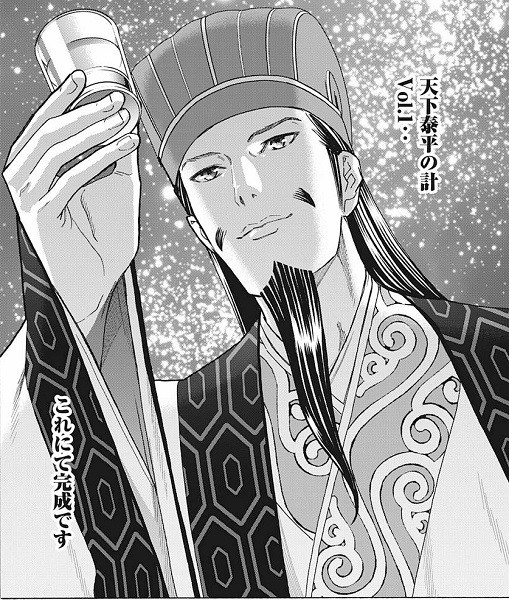
After sustaining a fatal wound in the Battle of Yiling that could have easily led to the country's downfall, Zhuge Liang devoted himself to rebuilding his country. While the country was on the brink of destruction, Zhuge Liang demonstrated legendary skill, mending relations with Wu, pacifying southern Yizhou, and restoring its finances with astonishing speed, reviving the country. It is his ability to rebuild the country in such a short time from the desperate situation of the Battle of Yiling and even launching the Northern Expedition that makes him a legendary figure.
Northern Expedition - Died of Illness at the Battle of Wuzhang Plains
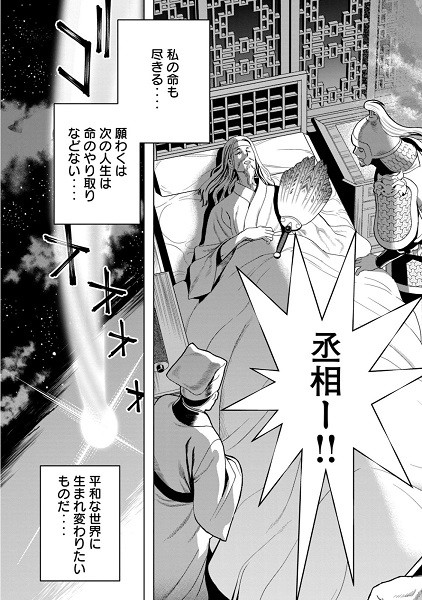
After stabilizing the country, Zhuge Liang launched five Northern Expeditions. One famous episode from these expeditions involves him crying as he beheaded Ma Su. However, during his fifth Northern Expedition, he fell ill at Wuzhang Plains and died at the age of 54.
[Party Kongming] A Summary of the Historical Facts of Zhuge Liang
We've put together a summary of the historical exploits of Zhuge Liang, who appears in Party Kongming! Zhuge Liang's portrayal as a genius military strategist is strongly associated with the Romance of the Three Kingdoms, and many people may be surprised to learn that he only achieved great success after Liu Bei's death. The Kongming in Party Kongming is closer to the Kongming in Romance of the Three Kingdoms. While the concept is that Kongming would have lived in modern times, knowing the historical facts and anecdotes will make it even more enjoyable!



